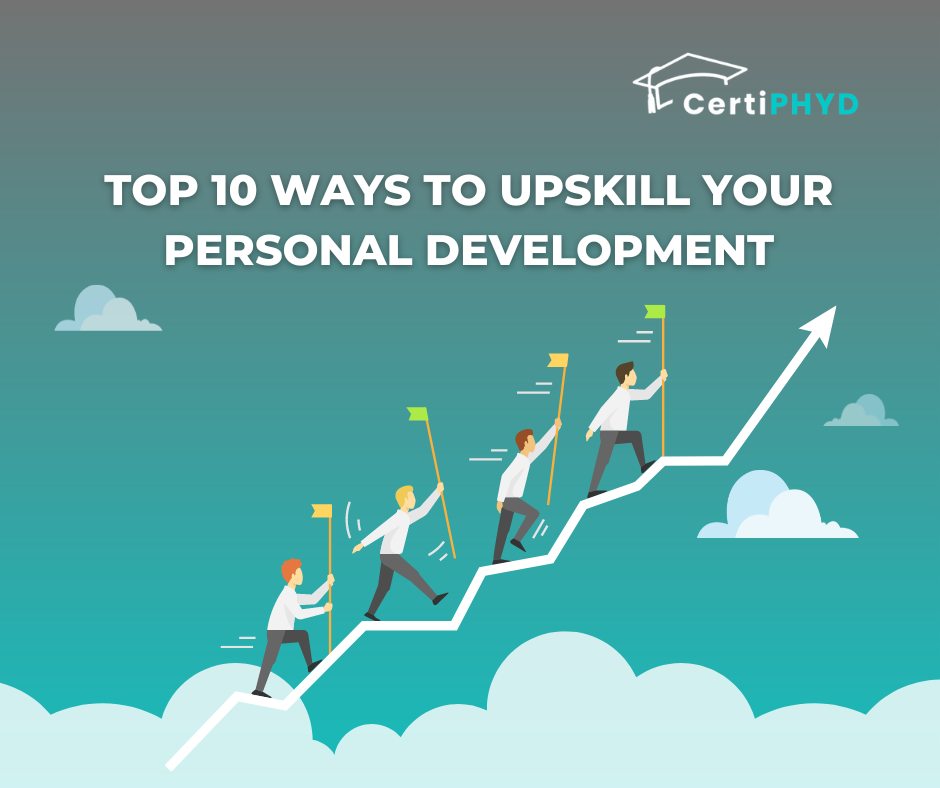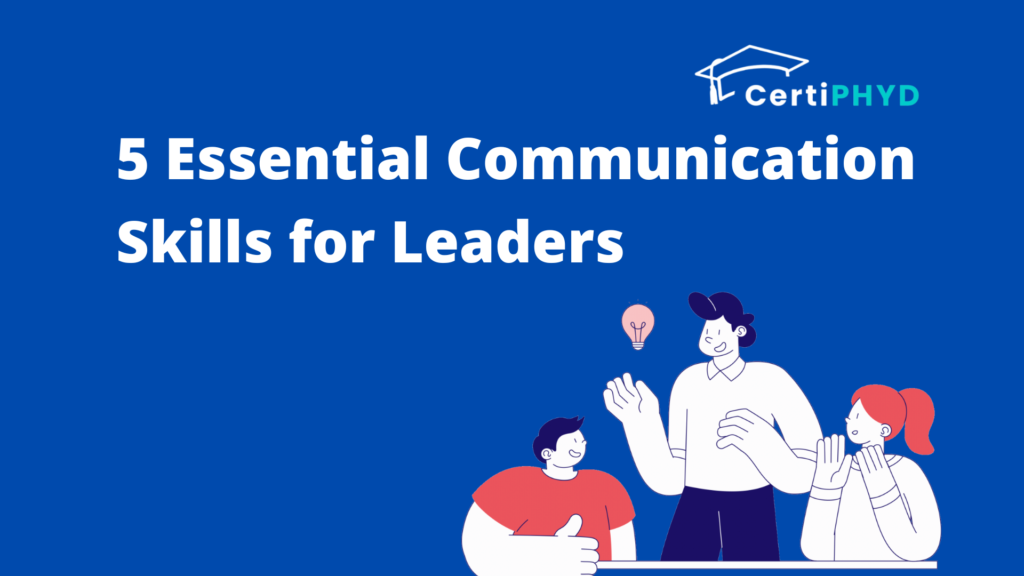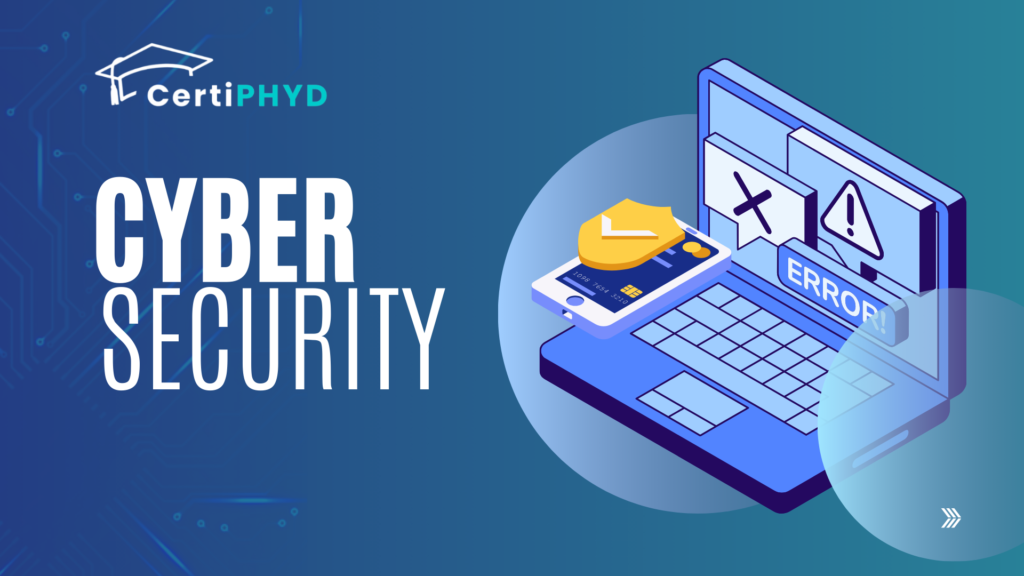Personal development is a lifelong journey of self-improvement, driven by the desire to enhance your skills, achieve your goals, and reach your full potential. Whether it’s mastering soft skills like communication or leadership or learning new technical abilities, investing in personal growth is crucial. Here’s how you can upskill yourself and make progress both in your professional and personal life.
What Are Personal Development Skills?
Personal development skills are the tools that help you grow mentally, emotionally, and professionally. These skills can be anything from emotional intelligence, leadership, and communication to time management, adaptability, and critical thinking.
Books like “Atomic Habits” by James Clear and “Mindset” by Carol Dweck are excellent resources that discuss how small changes in habits and mindset can have a profound effect on your growth journey.
Why Are Personal Development Skills Important?
These skills help you:
- Achieve personal and career goals.
- Advance in your career.
- Enhance your strengths and talents.
- Boost self-confidence and satisfaction.
- Maintain a growth mindset.
Now, let’s dive into the top 10 strategies to improve these crucial skills:
1. Assess Your Strengths and Weaknesses
To grow, start with an honest evaluation of yourself. Identify where you excel and where improvement is needed. Create a list of your strengths and areas for development. For example, if you find public speaking difficult, focus on improving your communication skills. This self-awareness can direct your learning and help you target specific skills.
2. Set Clear, Achievable Goals
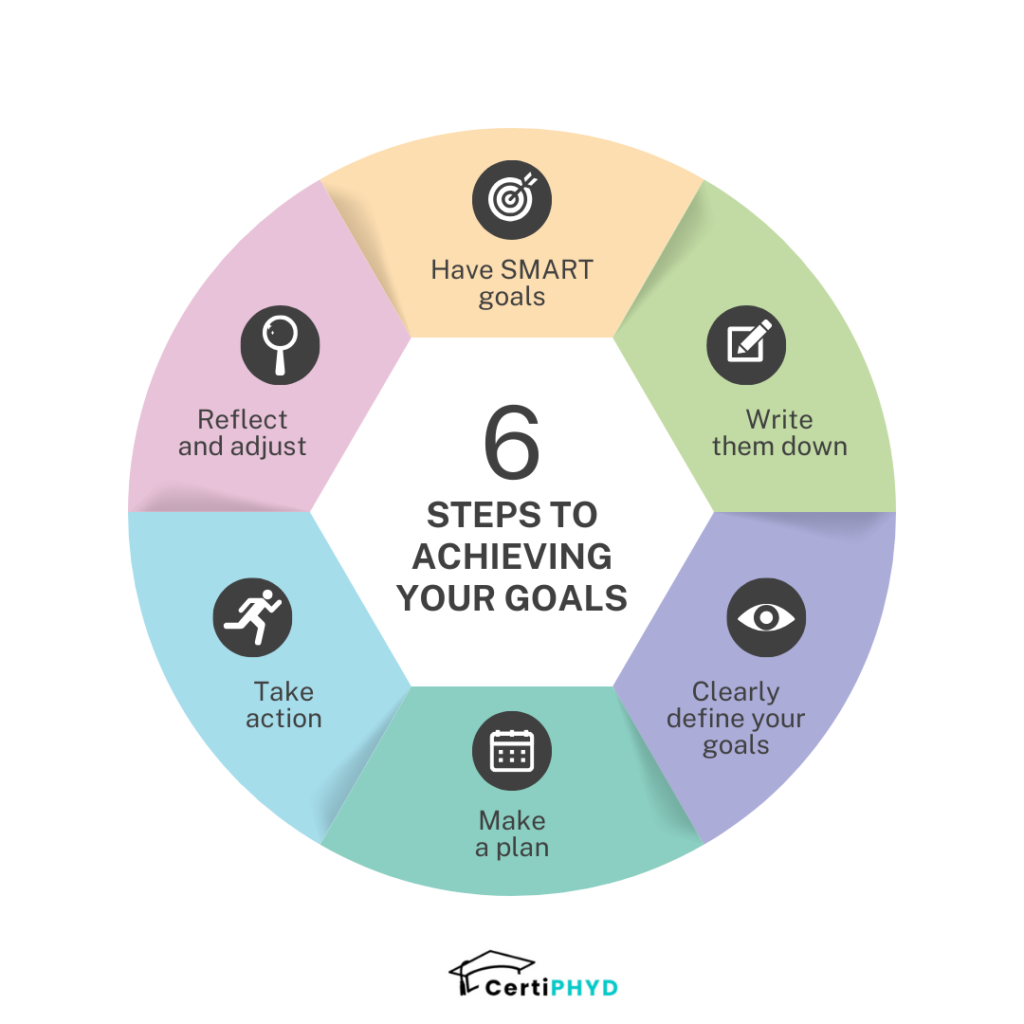
It’s important to have a roadmap for growth. Define clear, measurable goals to give yourself direction. For example, instead of saying, “I want to improve my communication skills,” say, “I want to improve my presentation skills by practicing twice a week.” Break your goals down into smaller tasks and track your progress.
As author Brian Tracy said, “Goals are the fuel in the furnace of achievement.”
3. Invest in Soft Skills Development
Soft skills such as communication, teamwork, and problem-solving are essential in today’s work environment. These skills not only make you more effective but also more adaptable. Courses like Soft Skills for Young Leaders are a great starting point. Improving soft skills can help you navigate social dynamics better and make you a stronger leader.
4. Read Books for Personal Growth
Books are a treasure trove of knowledge and inspiration. Reading widely helps you see things from different perspectives. Some great reads for personal development include “Atomic Habits” by James Clear for building lasting habits and “Mindset” by Carol Dweck for understanding the power of a growth mindset.
Reading not only enriches your mind but can also introduce you to new strategies for overcoming challenges.
5. Learn from Mentors
A mentor can be anyone who has expertise in an area you want to develop. Whether it’s a senior colleague or someone in your personal life, learning from their experience can accelerate your growth. For example, if you want to develop leadership skills, seek out someone who has led successful teams. Their advice can offer practical tips and insights that books or courses may not.

6. Practice Self-Reflection Regularly
Take time every week to reflect on your actions, decisions, and progress. Writing in a journal can help you monitor your emotional and mental well-being. It also makes it easier to spot patterns in your behavior and adjust accordingly.
A simple exercise: write down one thing you did well today and one thing you could improve. Over time, this can guide your self-improvement efforts.
7. Embrace Continuous Learning
Upskilling is crucial. Dedicate time to learning new things, whether it’s through online courses, workshops, or attending conferences. Websites like CertiPHYD offer flexible courses in various fields. For example, taking a course on leadership management can help you handle delegating more efficiently.
8. Step Outside Your Comfort Zone
Growth happens when you push yourself. Whether it’s taking on new responsibilities at work or learning a new skill, stepping outside your comfort zone helps you become more adaptable.
If you’re shy, for instance, try speaking up more during meetings. Each step outside your comfort zone, no matter how small, builds resilience and confidence.
9. Stay Accountable
Tell someone you trust about your personal development goals. Whether it’s a friend, family member, or colleague, having someone to check in with can keep you motivated. For example, if your goal is to learn a new skill, ask your accountability partner to check in on your progress every week. Accountability adds an extra layer of commitment.
10. Celebrate Small Wins
Personal development isn’t just about achieving big milestones. Small victories along the way matter just as much. Did you complete a course? Celebrate it! Did you give your first presentation without anxiety? Pat yourself on the back! Acknowledging small wins keeps your motivation high and reinforces positive habits.
As Tony Robbins says, “Progress equals happiness.”
Conclusion
Personal development is not a one-time event but a continuous journey of growth. From learning soft skills to mastering time management, there are countless ways to invest in yourself. Taking small, consistent steps toward self-improvement will set you up for success in both your personal and professional life.
As Jim Rohn said, “Work harder on yourself than you do on your job.”
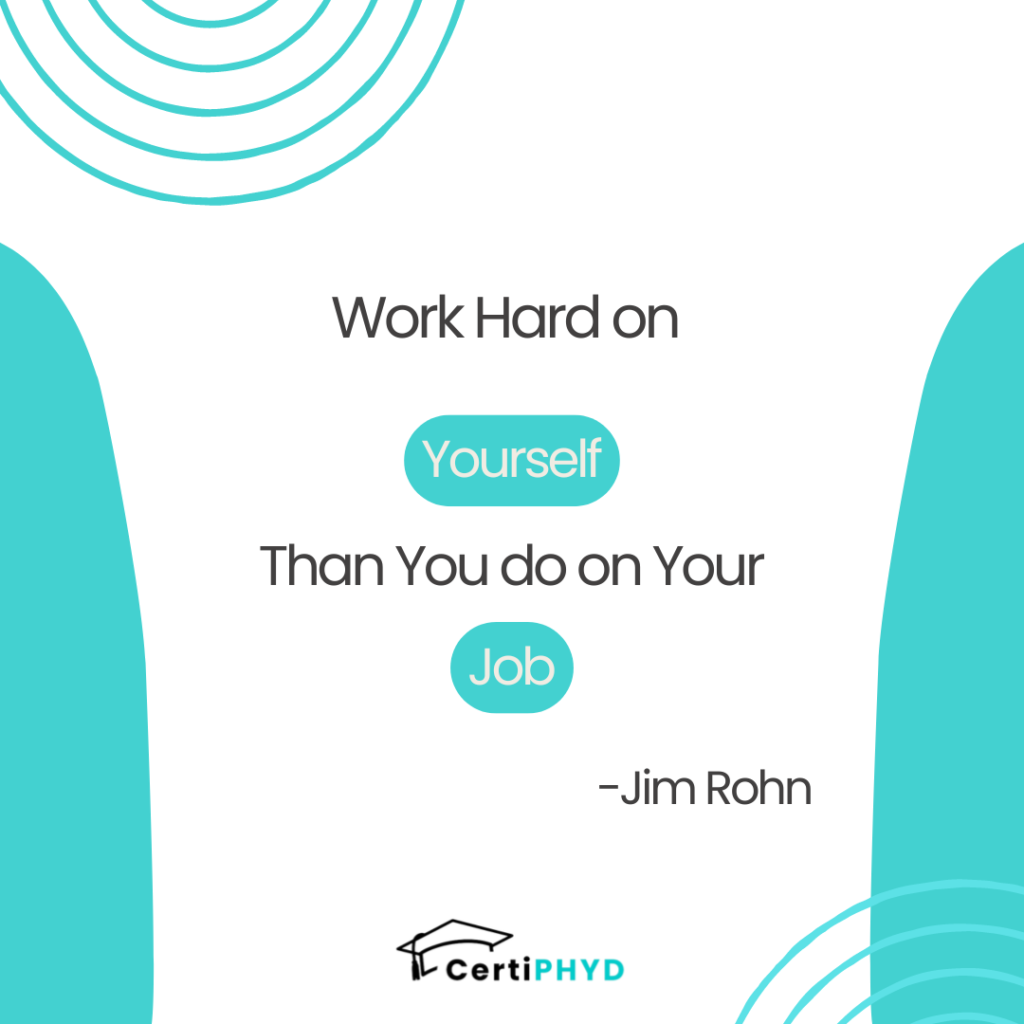
By integrating these strategies into your life, you’ll be well on your way to unlocking your full potential.
+++
FAQ’S
- Why is personal development important for career growth, and how can CertiPHYD help?
Personal development equips you with the skills needed to adapt and excel in your career. CertiPHYD offers a wide range of tailored courses designed to improve essential skills like communication, leadership, and personal development. By enrolling in CertiPHYD’s programs, you can accelerate your growth and better prepare for new challenges in your professional journey. - What are some simple ways to improve personal development skills through CertiPHYD?
CertiPHYD provides practical, step-by-step courses that help you improve key areas like public speaking, problem-solving, and emotional intelligence. For example, our communication course offers role-play exercises and real-time feedback to help you practice in a supportive environment. Plus, our flexible learning modules allow you to fit personal development into your busy schedule. - What specific soft skills can I develop with CertiPHYD?
CertiPHYD focuses on enhancing critical soft skills like leadership, teamwork, adaptability, and emotional intelligence. For example, our leadership course includes hands-on case studies and simulations that challenge you to make decisions under pressure—helping you build confidence in real-world scenarios. - How does CertiPHYD’s mentorship program support personal development?
CertiPHYD connects you with seasoned mentors who provide expert advice and guidance. Our mentors help you set clear goals, overcome challenges, and offer industry-specific insights to help you excel. Whether you’re seeking career advancement or personal growth, CertiPHYD’s mentorship accelerates your progress. - What role does continuous learning play in personal development, and how does CertiPHYD contribute?
Continuous learning is at the core of personal development, and CertiPHYD offers ongoing access to new courses, resources, and learning materials. Our programs are designed to keep you updated with the latest trends and skills, ensuring you stay competitive in today’s fast-paced environment. - How can CertiPHYD’s courses help me step outside my comfort zone? CertiPHYD courses are designed to challenge you and push you to grow. From leadership simulations to role-play scenarios, we provide real-life challenges that take you outside your comfort zone. For instance, our workshops encourage learners to present in front of virtual audiences, helping you build confidence in a safe space.
–END–

